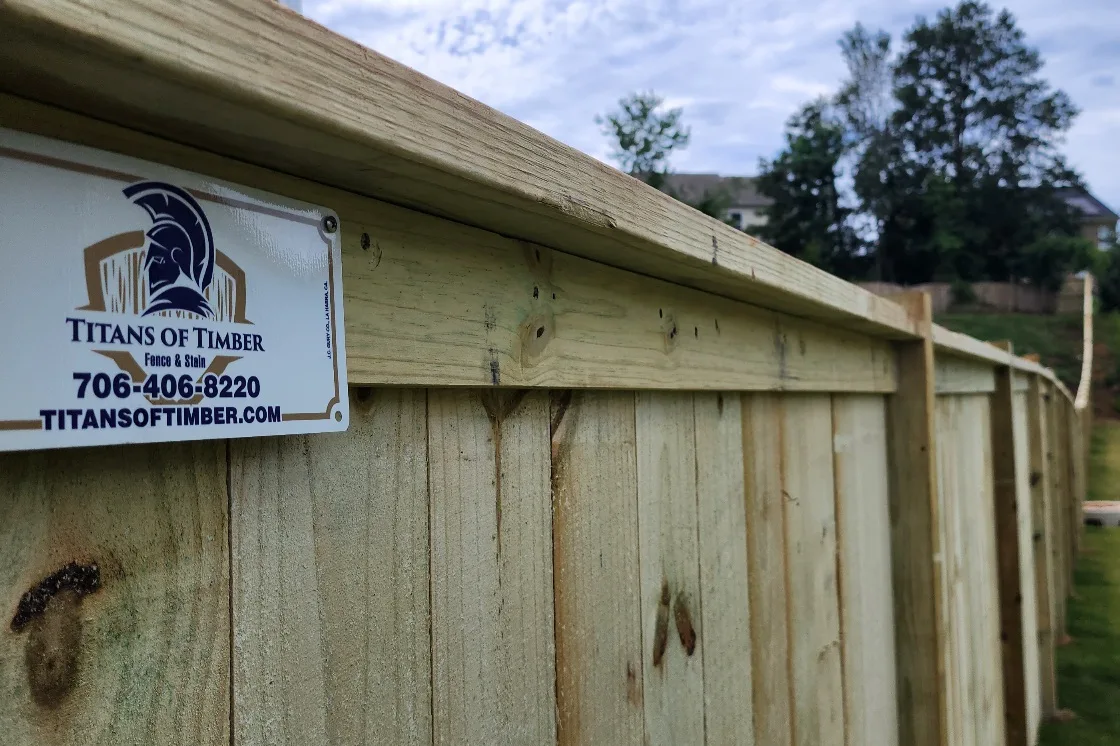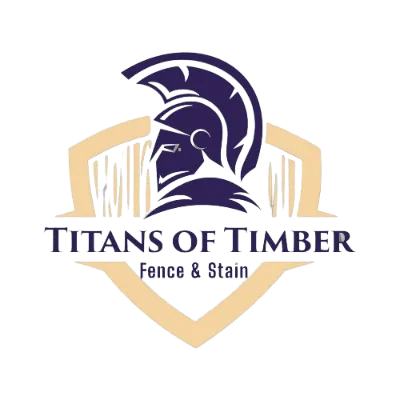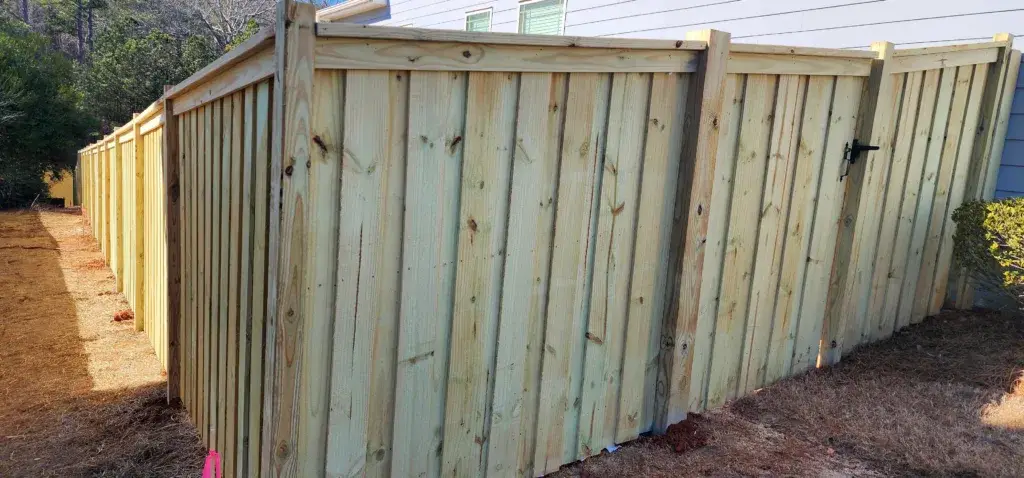
Transform Your Home’s Curb Appeal with the Ultimate Fence Guide!
When it comes to giving your home an instant facelift, few things work as effectively as a well-chosen fence. It’s not just about marking your territory; a fence is a statement piece that says a lot about your style and what lies beyond its boundaries. As a seasoned fence installation expert, I’ve seen firsthand how the right fence can transform a property from “just another house” to “the jewel of the neighborhood.” So, whether you’re a DIY enthusiast or planning to call in the pros, this guide is for you, especially if you’re a suburban homeowner looking to make a change that matters.
Why Fences Matter in Home Design
A fence does more than just define the perimeter of your property. It plays a crucial role in the aesthetic appeal of your home, providing privacy, security, and even a noise buffer. But the real magic happens when a fence complements your home’s architectural style, tying together the look and feel of your outdoor space with your home’s overall design. Think of it as the frame that enhances a beautiful painting.
Understanding Your Needs and Goals
Privacy: Your Personal Oasis
Who doesn’t love a little privacy in their backyard? Whether it’s a space for your morning yoga or a nook for your evening unwind, the right fence can turn your backyard into a secluded retreat. I remember a client who wanted a privacy fence but was worried about it looking too imposing. We opted for a wooden fence with lattice work at the top—privacy without the fortress feel.
Security: Keep Your Sanctuary Safe
Security doesn’t mean sacrificing style. Aluminum fences, for instance, offer a sleek, modern look while making it difficult for unwanted guests to hop over. A family I worked with had small children and wanted a secure backyard without making it feel closed off. An aluminum fence with spaced pickets was the perfect solution—it kept the kids in sight without feeling like a barrier.
Aesthetics: The First Impression
Your fence is often the first thing people see. A mismatched fence can be as jarring as clashing attire at a formal event. Matching your fence to your home’s style isn’t just about colors or materials; it’s about reflecting the essence of your home’s design. A quaint cottage-style house with a white picket fence, for instance, tells a story before you even step inside.
Maintenance: Ease Over Time
Vinyl fences are my go-to recommendation for a low-maintenance option that doesn’t skimp on style. They resist weathering, require no painting, and can be cleaned with a simple hose down. One of my clients, tired of staining their wood fence every few years, switched to vinyl and hasn’t looked back.
Fence Materials: Pros and Cons
Choosing the right material is critical, and each has its trade-offs:
- Wood: Nothing beats the classic look of wood, but it requires regular maintenance to prevent weather damage and rot.
- Vinyl: It offers a clean look and is virtually maintenance-free, though it may have a higher upfront cost.
- Aluminum: Aluminum fences provide a modern aesthetic and are low maintenance, but they might not offer the same level of privacy and security as other options.
- Composite: Made from a blend of wood and plastic, composite fencing offers the best of both worlds but can be on the pricier side.
Designing Your Fence for Maximum Impact
When designing your fence, consider how the color, texture, and scale will complement your home. A tall, solid fence might offer privacy but can make your yard feel smaller. Incorporating elements like gates, arbors, or even planters can add character and functionality to your fence, turning it from a mere boundary into a feature of your garden.
Navigating Local Regulations
Before you start digging, make sure you’re clear on local zoning laws and homeowners’ association guidelines. A neighbor of mine learned this the hard way when he had to modify his newly installed fence to comply with height restrictions. A simple check beforehand can save you time, money, and headaches.
DIY vs. Professional Installation
While there’s a certain pride in building your own fence, professional installation ensures it’s done right the first time. If you’re set on DIY, do your homework—understand the materials, tools, and techniques required. And don’t forget to call 811 before you dig to avoid any underground utilities!
Maintenance and Upkeep
Regular maintenance can extend the life of your fence and keep it looking great. For wood fences, this might mean annual staining or sealing. For metal fences, keep an eye out for rust spots that need to be treated. Remember, a little upkeep goes a long way in preserving your fence’s beauty and functionality.
Fence Enhancement Ideas
Beyond the fence itself, think about how landscaping can enhance both privacy and aesthetics. Strategic planting can add color and texture, while outdoor lighting can illuminate your fence, adding security and ambiance to your yard after dark.
In Conclusion
Choosing the right fence is about balancing your needs for privacy, security, and aesthetics with the practicalities of maintenance and local regulations. With careful planning and consideration, your fence can enhance not just your home’s curb appeal but your enjoyment of your outdoor space.
Remember, a fence is more than a boundary—it’s an extension of your home. Whether you opt for the warmth of wood, the durability of vinyl, the elegance of aluminum, or the innovation of composite materials, make sure it reflects your style and meets your needs. And when in doubt, consulting with a professional can help turn your vision into reality.
FAQs
What is the best fence material for my climate?
- The best material depends on your local weather conditions. Wood privacy is great for moderate climates but may suffer in very wet or dry conditions. Vinyl and aluminum are more weather-resistant options.
How high can I build my fence?
- This varies by location. Check local zoning laws and HOA rules for height restrictions.
Can I install a fence by myself?
- Yes, but it depends on the complexity of the fence and your DIY skills. Simple vinyl or wood fences are more manageable than complex designs or materials.
How do I maintain my fence over the years?
- Maintenance varies by material. Wood fences require regular staining or sealing, while vinyl and aluminum need occasional cleaning.
What should I do if my fence gets damaged?
- Small repairs might be DIY-able, but significant damage might require professional help, especially if structural integrity is compromised.
How often should I replace my fence?
- With proper maintenance, wood fences can last 15-20 years, while vinyl and aluminum can last even longer.
Remember, your fence is the frame to the masterpiece that is your home. Choose wisely, maintain regularly, and enjoy the beauty and security it brings to your property. If you are in the Atlanta area, feel free to contact us to request a free consultation or to answer any questions you may have.
More Articles
Learn how to secure HOA approval for your fence project and discover the perfect wood, vinyl, or chain link fencing options for transforming your
Learn how to secure HOA approval for your fence project and discover the perfect wood, vinyl, or chain link fencing options for transforming your
Discover the perfect wood, vinyl, or chain link fencing options for transforming your home's curb appeal. Plus, explore our expert fence and deck



